|
I just spent the entire weekend with some of the most amazing Gold Star ladies. They were made of strength, courage, and resilience. They shared their stories. The REAL ones. The HARD ones. The PAINFUL ones. But the beauty in it all was their UNRELENTING AUTHENTICITY and VULNERABILITY . I loved learning from them- It's ok not to be ok. Life is not linear. Life is more like a cork screw and sometimes we end up right where we thought we moved on from. And that's ok. This is our story. As I was reading Brene's blog this morning it reinforced this weekend more than ever. When we can own our stories we can write brave new endings...for us and our country. When we deny our stories, they define us.
When we own our stories, we get to write a brave new ending. I know this is true. I may have learned it as a researcher but I live this truth as a daughter, a partner, a leader, a sister, a mother, and a friend. When we push down hurt or pretend that struggle doesn’t exist, the hurt and struggle own us. I’ve learned that writing a brave new ending in our personal lives means:
Until we find a way to own our collective stories around racism in this country, our history and the stories of pain will own us. We will not get away from the violence and heartbreak. Fear and scarcity will continue to run roughshod over our country. Yes, the violence in Charleston is also about access to guns and, more than likely, mental illness. But it’s also about race. Our collective stories of race in the US are not easy to own. They are stories of slavery, violence, and systemic dehumanization. We will have to choose courage over comfort. We will have to feel our way through the shame and sorrow. We will have to listen. We will have challenge our resistance and our defensiveness. We have to keep listening even when we want to scream, “I’m not that way. This isn’t my fault!” We have to examine and own stereotypes and prejudices. Every single one of us has them. It will be tough. We will need to sit down with our children and talk about privilege. This means honest conversations about how we were raised and what we need to work on. No blaming or shaming, but truth. It’s not productive to deny how hard we all work for what we have, but it’s not honest to deny that many of us are afforded privileges based on who we are and what we look like. Will these conversations stop violent hate crimes? No one knows for sure, but we shouldn’t underestimate the power of love and truth-telling. This is not bigger than us. This is us. Yes, we need to own a million heartbreaking stories of discrimination and prejudice, and make millions of changes, and hold space for a million tough conversations. But, if each one of us owns one story and makes one change and has one honest conversation where we listen more than defend or offer false comfort – we can do this. There is a way to write a brave new ending to one of the most painful stories in our history. What remains to be seen is if we have the will and courage. I believe we do. -Brene Brown Brene's blog
0 Comments
 There is a paradox around vacations. We all know that it is important to get away from the office periodically. Time away from work gives you a chance to relax, to reduce stress, renew your ties with your family, and to get away from problems you have struggled with so that you can think about them differently on your return to the office. However, as a vacation approaches, we generally look at it with dread. There is too much work to be done! There are new projects starting and others that need to be completed. How could we possibly have selected this particular week to go away? It can get so bad that you might think twice before planning another trip. Why is it that a vacation seems like a great idea when we first plan it, but feels like more and more of a burden the closer it gets? It all comes down to distance. Over the past 15 years, quite a bit of research has focused on what Yaacov Trope and Nira Liberman call construal level theory. The idea is that the more distant some object or event is for you, the more abstractly you think about it. Distance can refer to physical distance, but it can also mean distance in other dimensions like time or social structure. So, an event that won’t happen for six months is distant, while an event that is happening later this week is near. Abstractness refers to the level of detail that is captured in your thoughts about the object or event. When a vacation is far off, you focus primarily on general characteristics, such as “This vacation will be so much fun,” “I can’t wait to sit on the beach and relax,” or “I love visiting new countries.” At a distance, most of your thoughts are focused on these desirable aspects of the trip. As the vacation gets closer, your thoughts become more specific. All of the details that are required for you to go on the trip come into view. You think about getting your passport renewed or reserving space on an excursion. You also start thinking about how to structure your work so that you can get away. You consider meetings you will miss, events that need to be rescheduled, and responsibilities that need to be shifted to someone else. When you contemplate the number of changes that have to made to accommodate your vacation, you begin to wonder why you ever agreed to take the trip at all. Because it really is important to get away, you should not add stress to your vacation by questioning your decision to go away. When you book your next trip, remind yourself of what you are going to feel like as the trip nears by imagining that you actually had to go on the trip next week. Look at your schedule and recognize that you will be busy no matter when you decide to go away. If it’s really a problem, start planning earlier – get your passport renewed well ahead of time, and book that excursion sooner too. Then, remember that all of the work you miss will be waiting for you when you get back. If it is important, and you are the person who has to do it, it will be there on your return. Finally, look back at your life over the last five years. How many specific weeks of your life can you remember? Chances are, most of the things you remember involve changes to your routine rather than business as usual. Your trips, family events, and new experiences are the ones that stick out in memory. Don’t let the mad rush the last week before you go away dissuade you from taking more trips in the future. Art Markman, PhD, is the Annabel Irion Worsham Centennial Professor of Psychology and Marketing at the University of Texas at Austin and founding director of the program in the Human Dimensions of Organizations. He has written over 150 scholarly papers on topics including reasoning, decision making, and motivation. He is the author of several books including Smart Thinking, Smart Change, and Habits of Leadership. Click here for Harvard Business Review site  Guest Post and Article from Becky Hammond with Isogo {LINK: http://www.isogostrong.com } Hard-charging and self-sufficient. I thrive in that space. I take pride in it. So, when life filled to the brim and bubbled over these past 10 months, I was not prepared for the help I would need. From a Strengths-based perspective, I have absolutely always thought that vulnerability and community were a beautiful thing. My CONNECTEDNESS craves the links and purpose between people. But, my ACHIEVER/ARRANGER one-two punch never foresaw the challenge of putting myself at the center of vulnerability and community as the one who needs. With my guy on deployment, a new baby to add to our two toddlers, my mom suffering from brain cancer, while nurturing a growing business, I saw it as a challenge to meet. But, as it turned out, it was a challenge to need. I was "that one" at the center of vulnerability and community, asking and arranging for an astounding web of people to support and catch us. So, I wrote about that discovery, journey, and humbling over here . I hope that by reading you will see into the truth from Brene Brown that Sarah herself reminded me of: "Vulnerability is the last thing I want you to see in me but the first thing I look for in you." About Becky: Becky Hammond, MBA, MHSM, founded Isogo to Discover your Talent, Develop your Team. She has spent her life leading and learning, and enjoys her work helping Fortune 500 and small business teams alike to Grow and Succeed, by understanding their own Talent and recognizing the Talent of those around them. Becky has been speaking the language of StrengthsFinder in life, on the page, on stage, and at work for 8 years and counting. Decades of research have revealed that EI is the critical factor that sets star performers apart from the rest of the pack. Daniel Goleman states there are five key attributes great leaders posses: 1. Self-awareness 2. Self-regulation 3. Motivation 4. Empathy 5. Social Skills Last week we took a look at empathy and today we start exploring social skills. Why do you think social skills are a vital component to leadership? Socially skilled people: 1. Have a wide circle of acquaintances 2. Have a knack for finding common ground with people of all kinds 3. Have a knack for building report Social skills are the culmination of the other dimensions of emotional intelligence. Leaders who exhibit social skills are: · Adept at managing teams (that’s their empathy at work) · Excellent persuaders (this is a manifestation of self-awareness, self-regulation, & empathy combined) · Effective change leaders · Experts in building and leading teams The result: a passion for their work spreads to others and they are driven to find solutions. On a scale 1 to 10, 1 being low and 10 being the highest: How do you rate on your social skills? No matter where you ranked, what are some ideas you can START doing today to improve your SOCIAL SKILLS? We hope the last 5 weeks have been helpful in discovering more about Emotional Intelligence and how it can set you apart from your peers! Did you know: Emotional Intelligence is 2X as important as IQ and technical skills for jobs at all levels. Daniel Goleman states there are five key attributes great leaders posses: 1. Self-awareness 2. Self-regulation 3. Motivation 4. Empathy 5. Social Skills Last week we took a look at motivation and today we start exploring empathy. Why do you think empathy is an important component of leadership? Here are three reasons: 1. The increasing use of teams 2. The rapid pace of globalization 3. Growing need to retain talent Leaders who exhibit empathy are more successful in understanding their teams emotional make-up which in turn: · Encourages people to speak more openly about their frustrations · Help people raise constructive complaints during meetings The result: heightened collaboration among members and added business Just remember- when good people leave, they take the company’s knowledge with them. Here are some ways hallmarks of individuals with high empathy: · Expertise in building and retaining talent · Cross-cultural sensitivity · Service to clients and customers On a scale 1 to 10, 1 being low and 10 being the highest: How do you rate on empathy? No matter where you ranked, what are some ideas you can START doing today to improve your empathy? Next week we explore SOCIAL SKILLS! 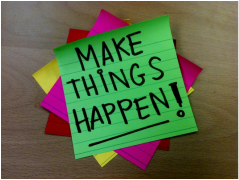 Did you know: Emotional Intelligence provides the skills needed for leaders/executives to not only get to the top, but stay there. Daniel Goleman states there are five key attributes great leaders posses: 1. Self-awareness 2. Self-regulation 3. Motivation 4. Empathy 5. Social Skills Last week we took a look at self-regulation and today we start exploring motivation. Why do you think motivation plays a vital role in leadership? People who have high motivation are driven to achieve beyond expectations not only for themselves but also for others. These individuals are the performance bar setters. Driven by the desire to achieve for the sake of achievement, these leaders are intrinsically motivated and not just driven by external factors. Key signs to help you identify people who are motivated by the desire to achieve: · The passion for the work itself · Unflagging energy to do things better · Persistent questions about why things are done the way they are · Continuously raising the performance bar · Constantly being asked to be “stretched” by their superiors · Always tracking their progress · Remaining optimistic even when the score is against them · Commitment to the organization It’s not hard to see the direct correlation between how motivation translates into strong leadership. Here are some ways to raise the bar: · Seek out creative challenges · Be restless with the status quo · Be eager to explore new approaches · Keep score · Recognize your limits · Drive to surpass goals · STAY OPTIMISIC! On a scale 1 to 10, 1 being low and 10 being the highest: How do you rate on motivation? No matter where you ranked, what are some ideas can you START doing today to improve your motivation? Next week we explore EMPATHY! 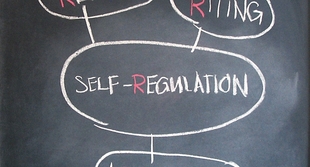 Did you know: 90% of top performers are high in Emotional Intelligence. Daniel Goleman states there are five key attributes great leaders posses: 1. Self-awareness 2. Self-regulation 3. Motivation 4. Empathy 5. Social Skills Last week we took a look at self-awareness and today we start exploring self-regulation. Why do you think self-regulation is so important for leaders? People who are in control of their feelings have the ability to create an environment of trust and fairness. In essence, self-regulation is the ability to control or redirect disruptive impulses or moods. It’s the propensity to suspend judgment and to think before acting. The benefits organizations see when they have employees with high self-regulation: · Politics and infighting reduced · Productivity is higher · Talent flocks to a company and doesn’t want to leave Furthermore, high self-regulation enhances integrity, which is not only a personal virtue but then becomes an organizational strength. Individuals high in self-regulation exihibt: · Propensity for reflection and thoughtfulness · Comfort with ambiguity and change · Integrity · An ability to say no to impulsive urges On a scale 1 to 10, 1 being low and 10 being the highest: How do you rate on self-regulation? No matter where you ranked, what are some ideas can you START doing today to improve your self-regulation? Next week we explore MOTIVATION! 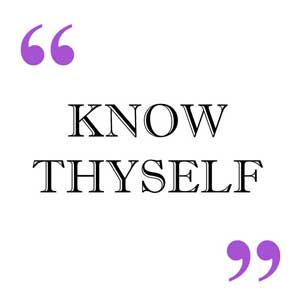 Last week we learned individuals with high emotional intelligence make $29,000 more annually than their low emotional intelligent counterparts. Daniel Goleman states there are five key attributes great leaders posses: 1. Self-awareness 2. Self-regulation 3. Motivation 4. Empathy 5. Social Skills Today we start with asking ourselves some self-awareness questions. Please answer honestly: 1. Do you have a deep understanding of your emotions, strengths, weaknesses, needs, and drives? 2. Are you honest with yourself and others? 3. Do you recognize how your feelings affect you, other people, and your job performance? In other words, can you assess yourself realistically? 4. Have you a clear understanding of your values and goals? 5. Can you speak comfortably about your limitations and strengths? And do you play to your strengths? How’d you do? If you answered no to any question(s), what are some ideas can you START doing today to improve your self-awareness? In essence, self-awareness is the ability to recognize and understand your moods, emotions, and drives, as well as your effect on others. Individuals who have high self-awareness exhibit: · Self-confidence · Realistic self-assessment · Self-deprecating sense of humor Next week we’ll explore what self-regulation looks like!  What distinguishes great leaders from merely good ones? Daniel Goleman wrote an article in Harvard Business Review about the key attributes of a great leader. Here's what he found: Individuals with high levels of emotional intelligence (EI) make great leaders. There are five key EI skills they posses: 1. Self-awareness-knowing one’s strengths, weaknesses, drives, values, and impact on others. 2. Self-regulation-controlling or redirecting disruptive impulses and moods. 3. Motivation- relishing achievement for it own sake. 4. Empathy- understanding other people’s emotional make-up. 5. Social Skill- building rapport with others to move them in desired directions. We are all born with certain levels of EI skills but can strengthen them through persistence, practice, and feedback. Research found managers who had a critical mass of EQ capabilities, their divisions outperformed yearly earnings by 20%. Organizations with high EI experience these advantages: 1. Politics & in fights are reduced. 2. Productivity is higher. 3. Talented people flock to the organization and stay (less turnover). 4. When employees master their emotions they can effectively handle change. 5. Enhances integrity which is a personal value but also a organizational strength. Over the next 5 weeks we're going to break down the five EI skills and the hallmarks associated with each. If the benefits stated above weren't enough to catch your attention, here's another fact: People with high emotional intelligence make $29,000 more annually than their low emotional intelligent counterparts.  Individuals with the theme STRATEGIC can quickly spot patterns and issues. They have the ability to create alternative ways to proceed with any given scenario. Sorting through the clutter to find the best way to move forward is a natural gift. How do they think? When others see complexity in situations, these individuals see patterns. This is a distinct way of thinking. They envision different scenarios constantly asking, “What if this happened?” How do they feel? These individuals are confidant and bring creative imagination to evaluating potential obstacles. When others see there’s no way, these individuals see many ways- but they are constantly on the look out for the best way. How do they behave? Evaluating possibilities, looking for patterns, and sorting clutter these individuals are able to select and then strike with the best route moving forward. They see, plan, and prepare for the future. Tips for living your best life as someone with STRATEGIC: • Make sure to set aside time each day to collect your thoughts to consider your current goals and strategies. It’s important to have time to think through your alternative scenarios before making a definitive answer. • Learn how to describe your “down the road” ideas. Help others see how importance of this strategic thinking talent. • Trust your insights as much as possible. Because you’re a quick thinker and you work at a fast pace you might not understand how you came up with the idea but most likely you’re right. Haven't taken Strengths yet? Click here Follow reCreate on Instagram and Twitter under reCreate_SD 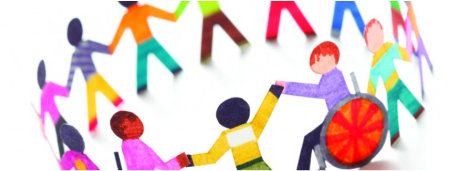 Individuals high in INCLUDER are extremely accepting of others. They are constantly on the lookout for those who feel left out and they make an effort to bring them into the circle. How do they think? Always thinking how they can stretch the circle wider, these individuals hold this philosophy at the center of their lives. They think we are equally important and no one should be ignored. How do they feel? Feeling the need to reach out to outsides is apart of who they are. They can sense those who feel unappreciated and will bring them in. Having a deep desire and capacity for bringing others in, these individuals also have a high level of tolerance. How do they behave? These individuals reach out and invite those on the outside in. They are extremely accepting of others. They cast few judgments and have a high level of acceptance when it comes to diversity. They are able to show awareness of others and include them. Tips for living your best life as someone with INCLUDER: • Seek out roles where you are continuously working and interacting with others. • Look for opportunities where you can bring others together. Help those new to the group get to know one another better. • Help others understand what the group has in common. You naturally look for the good in people. Help others recognize this as well. Haven't taken Strengths yet? Click here Follow reCreate on Instagram and Twitter under reCreate_SD  Individuals high in COMMUNICATION are excellent conversationalists and presenters. They have a natural ability to put thoughts into words and turn ideas into action. How do they think? Constantly hunting for the perfect phrase, these individuals are drawn toward dramatic words and powerful statements. Not only do they find words for their own thoughts and feelings but they also have the gift to reach out and connect with others in meaningful ways. How do they feel? Wanting to captivate their audience, it’s not enough for these individuals to just to tell a story but it’s equally as important to be heard and understood. Knowing ideas are just the beginning and events are static, they feel the need to bring them to life. This energizes them. How do they behave? Turning thoughts into actions and events into stories, these individuals love to explain, describe, host, speak in public, and write. They love to practice telling these stories over and over and continue to improve as they go. Tips for living your best life as someone with COMMUNICATION: • Seek out roles where you are paid to capture people’s attention. This might look like teaching, marketing, sales, ministry, or media. • Keep on the lookout to help others put their ideas or feelings into words. • When presenting- listen closely to your audience. Remain mindful of their reactions to each part of your presentation. This can help you redraft and make improvements for next time around. Haven't taken Strengths yet? Click here Follow reCreate on Instagram and Twitter under reCreate_SD  Individuals high in RESTORATIVE love to solve problems. They are talented in figuring out what is wrong and coming up with a solution to resolve it. How do they think? These individuals enjoy the challenge of analyzing situations, identifying what is wrong, and finding a solution. They have a solution-oriented mindset. How do they feel? Energized by restoring situations to their original form, these individuals are considered to be great troubleshooters. They feel accomplished when they can look a situation, figure out where it’s not performing, and bring about a solution to resolve it. How do they behave? These individuals enjoy the challenge of discovering and removing obstacles. Looking at the breakdown, analyzing the symptoms, identifying what is wrong, and finding a solution is energizing. They fix it, resuscitated it, and rekindled its vitality. When most people think a situation cannot be resolved, these individuals are the one's you should call. Tips for living your best life as someone with RESTORATIVE: • Seek roles in which you are paid to solve problems. • Look for turnaround situations that others avoid. You will enjoy the challenge. Also look for easy-to-solve problems. • Think through ways you can improve your skills and knowledge. Find courses you can plug into any gaps you might have. Haven't taken Strengths yet? Click here Follow reCreate on Instagram and Twitter under reCreate_SD  Individuals with the theme intellection enjoy and appreciate introspective and intellectual discussions. They like to “stretch” their brain muscles in multiple directions by thinking in multiple ways. The focus of their thinking depends on the individual and their strengths. The theme simply states these individuals enjoy processing inwardly. How do they think? They like to think. Usually characterized by their intellectual activity, these individuals like their thoughts to go in many directions. They are known for needing the ability to sit and ponder. How do they feel? Feeling confident when they’ve had time to sit and reflect. They desire to have a depth of understanding and wisdom. Needing time to sit and reflect energizes them. How do they behave? These individuals love to read and analyze things. They are known for being a good sounding board. This allows others to help discover new ways to solve problems or enhance quality. Taking the time to reflect helps them bring wisdom and clarity. Tips for living your best life as someone with INTELLECTION: • Make sure to set aside time each day to collect your thoughts. This will sharpen your thinking and make you more effective. • Identify colleagues in your work environment with whom you can have intellectual conversations with. • Take time to write. This might be the best way to crystalize your thoughts. Haven't taken Strengths yet? Click here Follow reCreate on Instagram and Twitter under reCreate_SD  Individuals with the theme CONNECTEDNESS believe there are few coincidences and find every event to have meaning. They have faith that links all things together. How do they think? Believing all things happen for a reason, these individuals think everyone is apart of something larger. In his or her mind, everyone is connected. How do they feel? Strong in their faith and that there is a purpose beyond everyday existence, these individuals find comfort and meaning in the unpredictability of the world around them. They feel stability in the face of uncertainty. How do they behave? These individuals can integrate parts into wholes. They help build the bridge between people and groups. Showing them how to relate and rely on one another, they help others find meaning in an unpredictable world. Tips for living your best life as someone with CONNECTEDNESS: • Seek out roles that ask you to listen and counsel. • Explore other ways to expand your sense of connection. This may look like a book club, attending a retreat, or finding an organization that put connectedness into practice. • You have a gift for helping others cope with uncertainty and unpredictability. Help others find meaning. Haven't taken Strengths yet? Click here Follow reCreate on Instagram and Twitter under reCreate_SD  Wanting others to see their worth, individuals high in SIGNICIFCANCE desire to be recognized, heard, and valued. It’s important that others appreciate and acknowledge the strengths individuals high in significance bring. How do they think? Constantly thinking about ways they can make a contribution to this world is a regular thought to them. Wanting to make sure their work is a way of life and not just a job pushes them to rise above mediocrity and reach upward. How do they feel? Thriving on meaningful recognition, these individuals feel confident when they are viewed as credible, professional, and successful. Likewise, they desire to associate themselves with others who are also viewed as credible, professional, and successful. They want to be surrounded with the best. How do they behave? They are intrinsically motivated, wanting to be given free reign, and the leeway to do things their way. Craving to fulfill goals, achievement, and qualification-they continuously drive onwards seeking to have impact on people, groups, and society. The desire to excel can raise the bar for others. Tips for living your best life as someone with SIGNIFICANCE: • Seek out opportunities where you can make a difference. • Find ways to expand your personal network. Ask yourself, “Whom do I find credible, productive, and professional?” • Make a list of goals and/or achievements you’d like to accomplish. Post them somewhere you can see them everyday. Haven't taken Strengths yet? Click here Follow reCreate on Instagram and Twitter under reCreate_SD To understand the present, individuals with CONTEXT enjoy researching the past and it’s history. They have the ability to connect where they have come from to where they are going.
How do they think? Thinking about the past helps these individuals grasp the present. They enjoy a retrospective viewpoint because they believe this is where the answers lie. By looking back this helps them discern the future direction. How do they feel? History provides them a feeling of confidence when making decisions for the present. At times they might feel disoriented by the inability to discern patterns in prior events. How do they behave? Believing the present is unstable, these individuals look back to help them make more educated decisions. Looking for patterns and a blueprint will allow them to understand which direction to move forward with in the present. Tips for living your best life as someone with CONTEXT: • When issues at work arise, ask your colleagues to identify the actions and other factors that led to it. • Look for a mentor who has a long history in your community and organization. • Read historical, non-fiction, or biographies as this will help you understand the present. Haven't taken Strengths yet? Click here Follow reCreate on Instagram and Twitter under reCreate_SD  These individuals have a contagious energy about them. They are light hearted, quick to smile, and give praise. You want to be around people like them. How do they think? They are constantly looking for the upside to all situations. Their glass is always have full. How do they feel? These individuals have a great outlook on life. They feel it’s good to be alive, work can be fun, and though some situations are less than ideal they feel there’s always an upside. How do they behave? Bringing high energy, enthusiasm, hope, and productivity is what gives these individuals their power and edge. They celebrate every achievement. They find ways to make things more exciting. Tips for living your best life as someone with POSITIVITY: • You have a great energy about you. Help others get excited about what you’re doing. • Never underestimate the effect you have on other people. If your team is in a funk- try to lift and lighten the mood. • Avoid negative people. They will bring you down. Haven't taken Strengths yet? Click here Follow reCreate on Instagram and Twitter under reCreate_SD Like this post? Comment below!  Individuals high in COMPETITION are all about the win. They are constantly comparing themselves to those around them and will work hard to outperform their peers. How do they think? They are always thinking about ways in which they can excel over their peers. Being very aware of others’ performances are a way in which they measure their own progress. How do they feel? They revel in contests and feel stimulated by wining. If they do not win, their achievement feels hallow even if they reach their own goals. They feel a deep aspiration to be the best and feel invigorated by other competitors. How do they behave? These individuals tend to compete in arenas where they feel they have the inside track and likely to win. They tend to avoid contests where wining seems unlikely. Tips for living your best life as someone with COMPETITION: • Focus on places where you can win. Take hold of your competitive nature and direct it towards areas where you can raise the levels of excellence. • Create daily measures of success for you and your teammates and frequently review. • Take the time to celebrate your wins. After all, there is no victory without celebration. Haven't taken Strengths yet? Click here Follow reCreate on Instagram and Twitter under reCreate_SD Like this post? Comment below!  Individuals with high individualization have a knack for understanding one’s uniqueness and drawing out the best in each person. Recognizing individuals are different and making productive teams are a gift these individuals have. How do they think? They look at each person- thinking about what motivates them, how they think, what’s their personal style, and how they build relationships. How do they feel? They feel impatient by generalizations. Their belief is that each person holds their own uniqueness and should not be stereotyped. They often focus on the differences among individuals versus commonalities. How do they behave? Building productive teams is a gift they bring by looking at all individuals , their strengths and maximizing on those talents. While most people think it’s the “process” or “structure” that makes a great team, these individuals recognize it’s actually the team members and their uniqueness that build amazing teams. They are also known for picking the perfect birthday gift for friends. Tips for living your best life as someone with INDIVIDUALIZATION: • Become an expert in describing your own strength and style. • Help your team or colleagues become aware of everyone's unique talents and strengths. • Study successful people, their uniqueness, and what’s brought them success. Haven't taken Strengths yet? Click here Follow reCreate on Instagram and Twitter under reCreateSD Like this post? Comment below!  Individuals with high BELIEF are usually family-oriented altruistic people who have certain core values that are unchanging. These values create a defined purpose for their lives. How do they think? They value responsibility and ethics which directs their lives- both in themselves and others. Their values are unwavering. This is what guides them in making the decisions they do. How do they feel? They feel strongly about these values and believe this gives them meaning in their lives. Belief gives them direction. How do they behave? They make decisions based on their unchanging principles. This gets them through temptations and distractions towards a consistent set of priorities. They are seen as dependable because you always know where they stand... Tips for living your best life as someone with BELIEF: • Find work/career that meshes with your values. • Don't be afraid to tell others about your values. This will help others understand you more. • Accept that others might not have the same values as you. Belief does not equate to judgmental. Haven't taken Strengths yet? Click here Follow reCreate on Instagram and Twitter under reCreateSD Like this post? Comment below!  WOO=Winning Others Over. People high in WOO have never met a stranger-only friends they haven't met yet. They derive energy from meeting new people and winning them over. How do they think? They are constantly thinking about ways in which they can connect with others. Getting to know someone and finding commonalities is what makes this person tick. They enjoy learning about others and helping people connect with one another. How do they feel? They feel energized when they can walk into a room full of people, meet someone new, find commonalities, win them over, and then move on to the next person. They enjoy the challenge and feel drawn to them. How do they behave? Striking up conversations and building rapport is what brings these individuals great satisfaction. When they meet others they want to learn their names, ask questions, and find some common interests. Tips for living your best life as someone with WOO: • Be intentional about building your network. Check in with each person at least once a month. • Practice charming and engaging others. Hone your skills of winning others over. • You're a great networker. Build your index of individuals and help others get connected through you. Haven't taken Strengths yet? Click here Follow reCreate on Instagram and Twitter under reCreateSD Like this post? Comment below!  Individuals high in ideation are exceptionally talented and creative. They are fascinated by new ideas and love originality. How do they think? They love to think outside the box. Brainstorming and discussion groups allow them to engage in free-thinking experiences. They enjoy considering issues from multiple perspectives and view points. How do they feel? Energized by new idea and views. Being creative and bringing a fresh perspective fuels their imagination. How do they behave? These individuals are always looking for connections even in disparate things. They are formulating and brainstorming new ideas, fresh ways of looking at something, or even explaining why things are the way they are. Tips for living your best life as someone with IDEATION: • Seek work where you are paid for your ideas and given credit for them. • Have regular brainstorming sessions. This fuels your creativity. • Discuss your ideas with others. Their responses can help refine your ideas. Haven't taken Strengths yet? Click here Follow reCreate on Instagram and Twitter under reCreateSD Like this post? Comment below!  As I mentioned to you last Friday, I love this time of year. New goals. New dreams. New ambitions for the 2015-year. At reCreate, we want to kick off 2015 by sharing with you a few of our goals, dreams, and ambitions… 1. Inspire. We hope our Strengths stories inspire you to take action. Get to know your Strengths. Understand at a deeper level why you are energized by some things and deflated by others. See the ways in which your Strengths play out in your daily life and how they’ve played in your successes. 2. Influence. Our hope is that you continue the “Strengths movement” by inspiring others to take action. This is where better communication happens, where the management of negative emotions happens, and where the building of resiliency happens. This domino effect is what creates real change inside a marriage, family, team, or organization. 3. Impact. We hope this will forever alter your life, team, and/or company. This is where purpose is realized, where higher levels of engagement occur, productivity soars, and profitability increases. Our goal is that our programs will create a sustainable impact in your lives. Perhaps our programs will serve as inspiration for you… Perhaps you can share some of your goals, dreams, and ambitions to inspire us! Let's make it a great year! Haven't taken Strengths yet? Click here Follow reCreate on Instagram and Twitter under reCreateSD Like this post? Comment below!  Individuals with ADAPTABILITY are "go with the flow" type of people. They are not intimidated or frightened by constant change In fact, they might actually look forward to it. How do they think? These individuals think in the "now". Looking at the present moment and current situation is how they conduct their everyday lives. Knowing that change is inevitable, they remain flexible to changing circumstances. How do they feel? They are at ease with unforeseen detours or sudden requests. This allows them to stay productive even when circumstances pulls them away from their original plans. They feel comfortable quickly changing paths or directions. How do they behave? Calm and collected in the way they respond to chaos. They are flexible in their days. They discover the future one choice at a time. Tips for living your best life as someone with ADAPTABILITY: • Avoid roles that demand structure and predictibility. • Help your team find productive ways to move forward in sudden change. Your natural ability to shift gears can help you become a great problem solver. • Look for short term assignments or projects that require immediate action. Haven't taken Strengths yet? Click here Follow reCreate on Instagram and Twitter under reCreateSD Like this post? Comment below! |
Team reCreate
Strengths-based Development (SBD) is our passion, commitment and life. Team reCreate is devoted to work that creates transformation, meaning and purpose in the lives of those we serve. This space is meant for you to get to know us, learn more about Strengths and hear from others in this line of work. Thanks for being on this journey with us! Archives
July 2015
Categories |
Location |
|
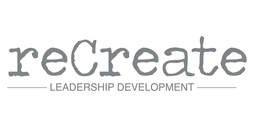
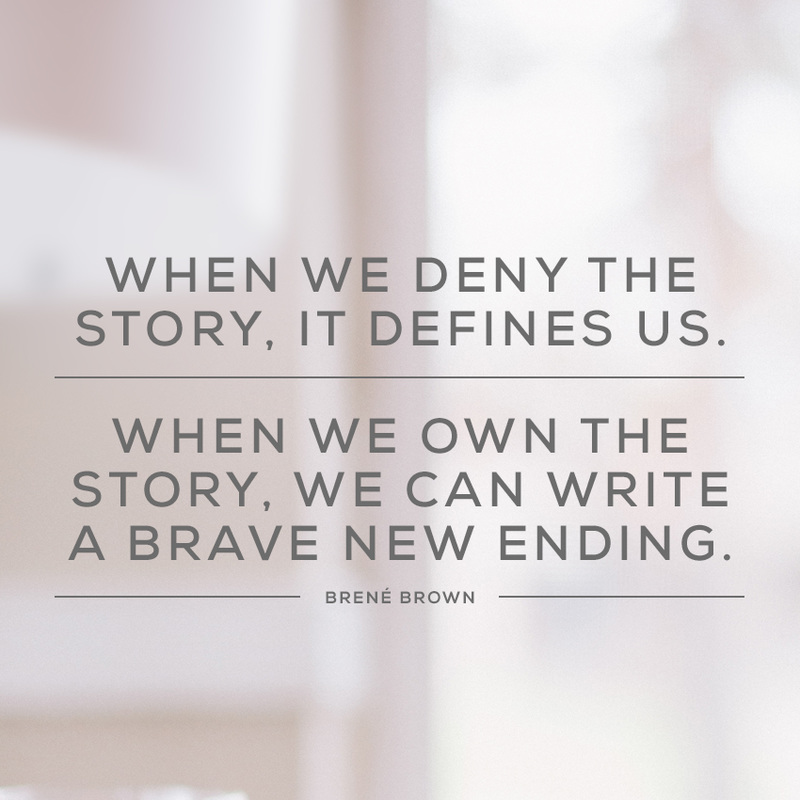
 RSS Feed
RSS Feed